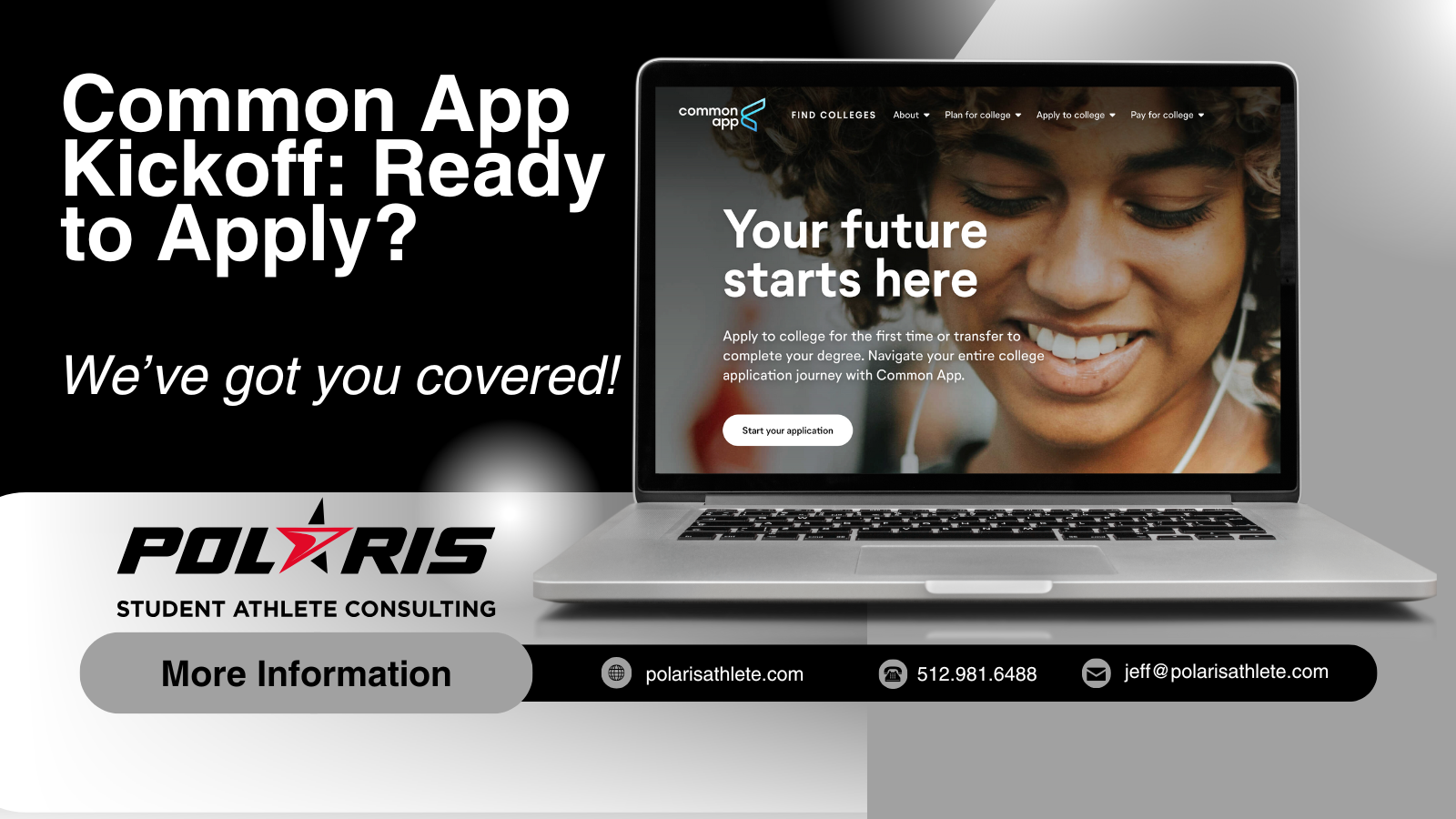Launch Day is Here
At POLARIS Student Athlete Consulting, we believe that preparation is power, and when it comes to applying to college, few milestones are more important than August 1, the official launch of the Common Application for the new admissions cycle and today also marks the 50th anniversary of the Common App.
Whether you're a student athlete navigating recruiting timelines or a family just beginning to explore college options, the Common App is a critical part of the process. Here's what it is, why it matters, and how to make the most of it.
What Is the Common App?
The Common App is a centralized college application platform used by over 1,000 colleges and universities. Rather than filling out separate applications for each school, students complete one core application that can be sent to multiple institutions. This streamlines the process and saves valuable time during a busy senior year.
You can access it at: commonapp.org
How it is Helpful for Student Athletes
Student athletes already balance a demanding schedule of training, competition, schoolwork, and often recruiting communication. The Common App:
Centralizes the application process, so students are not juggling multiple logins or redundant forms
Saves time by allowing information to be entered once and reused across colleges
Supports organization, with tools to track deadlines, supplements, and recommendations
Aligns with recruiting strategy, whether applying broadly or targeting specific programs
At POLARIS, we help student athletes use the Common App strategically to highlight their leadership, discipline, and resilience both on and off the field.
What You’ll Find Inside
The Common App is divided into several sections:
Profile: basic details, contact information, demographics
Family: parent or guardian education and household information
Education: schools attended, GPA, coursework
Testing: SAT or ACT (if submitting, as many schools are test-optional)
Activities: up to 10 extracurriculars, including sports, jobs, and volunteering
Writing: the main Common App Essay (650 words)
College-specific Questions: additional essays or prompts unique to each school
Students also submit transcripts, recommendations, and, if applicable, portfolios, test scores, and NCAA Eligibility Center information separately.
Key Tips for Students and Families
Start early: essays, supplements, and recommendations take time
Be strategic with the Activities section: highlight athletic leadership, academic honors, and growth
Craft a compelling personal statement: focus on your story, not just your accomplishments
Ask for letters of recommendation in advance: give teachers and coaches time to write thoughtfully
Track supplement requirements carefully: many schools have additional short-answer essays
For Parents: How You Can Support
Help your student stay organized, especially around deadlines and required documents
Encourage brainstorming, but let your student’s authentic voice shine through
Begin financial aid conversations early
Keep the process supportive: this is your child’s journey, and your encouragement matters
Applying to college can feel overwhelming, but it doesn’t have to be. With the right support and strategy, student athletes can navigate the process with clarity, confidence, and purpose.
Benefits of the Common App
Using the Common App not only simplifies the college application process, it also gives students a structured way to present their story, strengths, and goals. With one core application, students can apply to multiple colleges at once, track important deadlines, and submit key materials like transcripts and letters of recommendation in one place. It’s especially helpful for student athletes managing busy schedules, allowing them to stay organized while focusing on both academics and athletics.
At POLARIS Student Athlete Consulting, we guide students through every step, from building a balanced college list to crafting standout applications while managing your NCAA eligibility as you prepare for NIL opportunities. August 1 is more than just the start of a new application cycle, it's the next step in your student athlete journey.
Ready to start strong? Let’s build your plan, tell your story, and open the door to your next opportunity.

